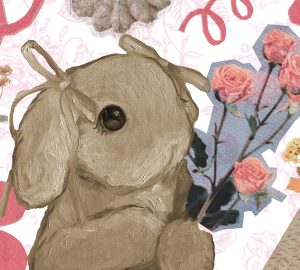
Confidence helps facilitate success. You won’t be able to achieve your dreams if you have no sense that what you’re doing is not only good, but important as well. However, problems arise when confidence becomes hubris.
In any profession, a productive attitude to adopt is to play the role of the perpetual student — someone who is always learning no matter how knowledgeable they become. A quick way to make yourself look arrogant to your peers and potential employers is to act like an opportunity to learn is beneath you.
Sometimes there are circumstances where a class or talk from a visiting writer seems superfluous, given what you have already learned. Never look at an opportunity to absorb information from someone older and more experienced than you as something devoid of value.
I would bet money — more than I could reasonably afford — that someone who says they are skilled enough to skip a higher level class because they already understand how to operate in that field is gravely mistaken. That attitude is not only grossly arrogant, but it rejects the notion that there is always something to learn and there is always room for improvement.
That attitude is rooted in stagnation and is averse to change, which are qualities of people who do not succeed and are repulsive to their peers. The comical aspect of it is that the same people who stagnate and don’t pursue every opportunity to learn tend to despise critique because it challenges the view of themselves which they believe to be perfect. Instead, they direct their perceived shortcomings outward and blame other people for misinterpreting their work without owning the chance to learn from their mistakes and improve.
It’s important to have confidence in yourself to do exceptional work, but there is a delusion among certain artists that they can somehow become great within a vacuum and thrive off of their raw talent alone.
In reality, the process of becoming great at what you do is a long and arduous journey that has no endpoint. It is defined by failing on a consistent basis and then using those failures as a springboard for improvements in the future. If you believe that you are perfect the way that you are, or above taking certain classes because you already know what you are doing, then you have no chance of becoming great.
Humility, discipline and reasonable confidence are the qualities that are going to propel you into success. The first step towards achieving that is understanding that there will never be a time that you don’t need to learn and grow as an artist. Never dismiss an opportunity to learn and you will never have to blame external forces for your failures.






















